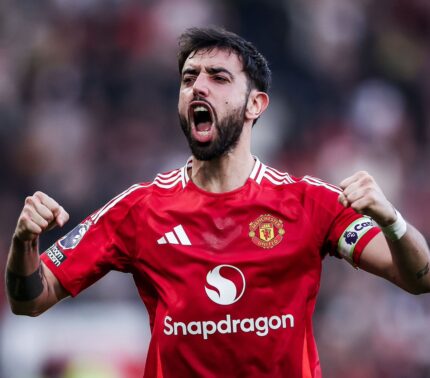The hearing into West Ham United midfielder Lucas Paqueta’s alleged involvement in spot-fixing has been postponed and is now expected to continue into at least May. The English Football Association (FA) had charged the 27-year-old Brazilian in May 2024, alleging that he deliberately received yellow cards in four Premier League fixtures to influence betting outcomes.
Initially anticipated to conclude by April, the case’s timeline has shifted due to complexities in the proceedings. Sources close to the case, speaking on condition of anonymity, revealed to The Athletic that the hearing, which commenced last month, will take longer than expected. The delay has sparked fresh debate on the challenges in investigating and prosecuting spot-fixing cases involving high-profile players.
Lucas Paqueta Denies Allegations, Moyes to Testify in His Defence
Paqueta has consistently denied any wrongdoing since the FA formally charged him. According to the FA, the charges are connected to yellow cards Paqueta received during Premier League games against Leicester City (November 12, 2022), Aston Villa (March 12, 2023), Leeds United (May 21, 2023), and Bournemouth (August 12, 2023). The governing body claims Paqueta “intentionally sought to receive a card from the referee” to manipulate betting outcomes for financial gain by himself or others.
In a significant development for Paqueta’s defence, former West Ham manager David Moyes has agreed to appear as a witness on his behalf. Moyes, who worked closely with Paqueta during his time at the club, was approached by the midfielder’s legal team and has confirmed his willingness to provide testimony during the proceedings. His involvement is expected to provide critical context around Paqueta’s on-pitch conduct and decision-making.
FA’s Accusations Focus on Betting Market Manipulation
The FA’s investigation centers on the allegation that Lucas Paqueta’s actions were not coincidental but part of a deliberate scheme to influence the betting market. The bookings under scrutiny occurred in matches where his actions appeared routine but, according to the FA, were intentionally orchestrated to produce specific betting outcomes. The FA asserts that the player “directly sought to influence” the matches “for the improper purpose of affecting the betting market.”
This case highlights the growing concern within professional football over the integrity of the sport amid rising betting-related misconduct. The FA, along with other footballing bodies, has ramped up surveillance and penalties for players found guilty of manipulating events to benefit from gambling, directly or indirectly.
Brazilian Parliamentary Report Adds International Dimension
While Lucas Paqueta’s legal team battles charges in England, a separate but related development has emerged from Brazil. A parliamentary inquiry into match-fixing and sports corruption recommended criminal proceedings against Paqueta’s uncle, Bruno Tolentino. According to The Athletic, Tolentino was named in connection with the alleged manipulation of sporting events for financial profit.
During a hearing before Brazil’s parliamentary commission, Tolentino chose to remain silent—a decision that has only intensified scrutiny of his role and potential connections to Lucas Paqueta’s case. Though no formal charges have yet been filed against Paqueta in Brazil, the cross-border nature of the allegations complicates the midfielder’s legal situation and public image.
Implications for Lucas Paqueta and West Ham United
The ongoing hearing and the potential for criminal proceedings in Brazil cast a long shadow over Lucas Paqueta’s footballing future. Although he remains eligible to play for West Ham United during the proceedings, the cloud of controversy may affect both his performance and any potential transfer dealings. The delay until at least May suggests that the saga will continue to dominate headlines and potentially disrupt team dynamics at a crucial point in the season.
West Ham has refrained from commenting on the specifics of the case but continues to monitor developments closely. As the investigation unfolds, stakeholders in both English and Brazilian football await further details with growing concern over the broader implications for the sport’s integrity














